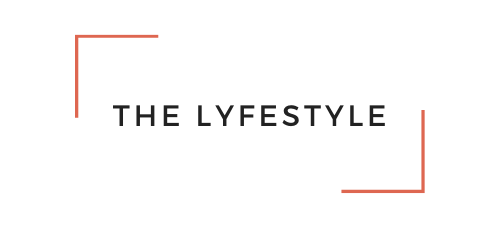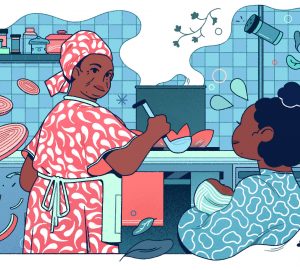There are healthy habits you can feel good about and then there are those you simply shouldn’t avoid. These 15 science-backed health, fitness, and nutrition practices fall into the latter.
Eat Less Carbs
LeBron James knows it, and you knew it all along: the less carbs you eat, the better. Researchers at Tulane University recently found that compared to those who ate less fat, people who reduced their carbs and ate more fat — at least 40% of their diet consisted of fat — lost weight faster after one year. When the body lacks carbs, it burns fat for energy instead and trims your waistline down in the process, says study co-author Dr. Tian Hu. Cutting carbs also decreased blood sugar and blood pressure, reducing the risk for cardiovascular disease.
The bottom line: Fat isn’t your enemy when it comes to losing weight. But that doesn’t mean you have to eliminate carbs all together, says Hu. He suggests focusing on limiting the carbs to 40 grams a day, starting with your intake of sugary beverages since liquid sugar lingers in the body longer than solid food.
Exercise More
We know exercise isn’t just about looking fit — it’s about feeling good and protecting your health too. Research suggests that just one hour of moderate exercise a week can slash your risk for heart failure in half. At Sweden’s Uppsala University, Dr. Kasper Andersen showed that in a study of about 40,000 people over 17 years, people who were more physically active had a lower risk of heart failure, with that risk decreasing depending on the amount of exercise they got. The study builds on previous discoveries that exercise can lower blood pressure and that marathon running bolsters your heart health.
You don’t have to become a marathon runner to reap the heart benefits of exercise. “We even saw large beneficial effects in persons with intermediate levels of physical activity in support of WHO’s recommendations of 150 minutes of moderate exercise,” says Andersen — which means brisk walking or cycling at 11 mph, once per week can still have positive effects. “Physical inactivity is one of the largest threats to public health in the Western World,” adds Andersen.
Sit Less
It’s pretty obvious: hours of sitting at your desk at work can wreak havoc on your health. In the last year, studies have piled up suggesting sitting can increase your risk for colon and endometrial cancer, disability, diabetes, heart disease, and obesity — most probably by fattening up your waistline and cholesterol levels.
But a recent study published in the journal Medicine and Science in Sports and Exercise gives us some good news: sitting all day at your desk doesn’t have to kill you. Indiana University researchers found that in healthy men, short bouts of walking — five minutes for every hour they sat, to be exact — can relieve the damage done by sitting all day. Because sitting can impair your endothelial function — the flow of blood in your legs and an early marker of cardiovascular disease — by at least 50 percent in the span of three hours, short strolls around the office help prevent that damage.
Have More Sex
Yes, sex counts as moderate exercise. Researchers at the University of Quebec at Montreal compared the energy expended between the sheets to the energy expended during a jog for 21 healthy couples. They found that the calories burned and the intensity level reached during roughly 25 minutes of sex was high enough to be considered equal to a brisk walk. Research has previously linked sex with good health: orgasms can reduce stress and depression by releasing certain hormones like oxytocin and in 2004, researchers found that having sex once or twice a week increased the body’s immunity to infections like the common cold compared to not having sex at all.
You can consider sex a complement to exercise, but definitely not a replacement for a regular workout routine. “Sex can be a very enjoyable activity and can be a complement to regular physical activity,” says Antony Karelis, a professor of exercise science at the University of Quebec at Montreal. But by no means should sex be your only form of exercise, since not every tryst will reach the same intensity or burn as much calories.
Avoid Stress
Unlike sex, stress isn’t good for you — period. But science now suggests how stress can beat up your heart: a recent study found that stress alone could increase your risk for stroke. In an 11-year long study of nearly 7000 adults, people who experienced chronic stress were 59 percent more likely to have a stroke compared to those who led less-anxious lives. Researchers previously found that elderly people with elevated levels of cortisol — a hormone that’s a potential marker of stress and can be analyzed through a strand of hair — were more likely to have heart disease.
The takeaway — make time to relax, listen to your body, and protect your heart, says Susan Everson-Rose, lead author of the stress and stroke study and a professor of medicine at the University of Minnesota. “Paying attention to what triggers these negative emotions or increases stress on a daily basis, and learning ways to calm down and release stress may protect against stroke risk and promote brain health.” Some proven ways to reduce stress or dodge depressive symptoms include exercise, sex or simply taking a breather.
Check Your Vitamin D Levels
If you’re lacking in the so-called “sunshine vitamin” — whether it’s because you’re not going outside enough, or eating enough fish, egg yolks or fortified cereal — you could be at risk for a lengthy list of health problems that include cognitive decline, weak bones, heart disease, and now premature death. A recent meta-analysis of 32 studies found that people with low levels of vitamin D in the blood had nearly double the risk of dying prematurely compared to those who had higher levels of about 50 nanograms per milliliter.
In terms of how much vitamin D you should make sure you’re getting, Liz Applegate, director of sports nutrition at University of California Davis says you should try to get at least 1000 IU, or over 40 ng/ml a day and depending on your lifestyle, you might already be getting this much. “If you’re an outdoorsman, the sunlight’s good enough,” says Applegate. “But during months when the sun isn’t high, get in the routine of vitamin D food, like cultured milk or soy products fortified with vitamin D. Be consistent.”
Don’t Eat Processed Red Meat
A little red meat is okay, experts say — as long as it’s unprocessed. In a meta-analysis comparing the danger of developing coronary heart disease from processed meat versus red meat, Harvard researchers found that consuming processed meats like those you find in the packaged deli aisle have a higher link to heart disease and diabetes compared to unprocessed red meat.
But Dariush Mozaffarian, a cardiologist at Tufts University says that the risk for heart disease from eating unprocessed red meat is only slightly higher than white meat. “When choosing meats, don’t be fooled by the health aura of low-fat deli meats, such as processed turkey, chicken, ham. While fresh (unprocessed) red meat does not improve health, it is relatively neutral for heart disease,” says Mozafarrian. “While processed (preserved) meats increase risk of heart disease, diabetes, and cancer, whether low-fat or high-fat, white meat or red.” In short, a little red meat — unprocessed — won’t damage your heart. Dr. Eirini Renata Micha, lead author of the Harvard meta-analysis, says while red meat is neutral, it also doesn’t have cardiovascular benefits either — and so you should limit your unprocessed red meat consumption to 1 to 2 servings a week, focusing on eating healthy foods like fruits, nuts, seeds, whole grains and fish.
Do Eat More Fruit and Vegetables
For years we’ve known that fruits are good for you, but thanks to new research, we now know just how good: a recent analysis published in the British Medical Journal looked at the all-cause mortality risk — which is the risk of premature death from any causes — of not eating enough fruit. The researchers concluded that people who ate just five portions of fruits and vegetables a day had a lower all-cause mortality risk compared to those who ate less or none at all. But beyond that, fruits like red grapes and blueberries can also boost your immune system better than any supplement or powder.
There’s no one perfect fruit to log in the portions, says Liz Applegate, but her best suggestion is an orange because it’s so portable. “You can eat an orange whenever you want, put it in your work bag or desk, and it’ll last a couple of days.” Says Applegate. “Oranges are versatile — you can put them in salads, yogurts, chicken dishes, and they’re also inexpensive.” Other good fruits include berries, Granny Smith apples, and mangoes. For vegetables, Applegate advises you get 2-3 cups a day and suggests tomatoes for their versatility. “It’s not enough to say, I take a multivitamin — it won’t have what tomatoes naturally have, like phytonutrients which help lower prostate cancer and fibers and nutrients.”
Go Outside
While you don’t need an expert to know how good it can feel, the benefits of going outdoors does have scientific support. Researchers at Denmark’s Aarhus University found that adults who worked on farms were less likely to develop allergies or sensitivities compared to urban dwellers. A small group of people even lost their allergies over time when they moved from the city to the country, says the study’s first author Grete Elholm. “The farm environment offers a much more varied microbial and bacterial exposure than the general urban setting provides us with,” he explains. And as recent research has shown, a diverse collection of bacteria in the gut is crucial for fighting allergies. “Get down to the earth (literally) and don’t be afraid of a little dirt,” Elholm suggests. “Getting a dog or two is not a bad idea either. The dog will make your house a little less clean, and supposedly better for your health.”
But going outside once in a while has other perks, too. “Humans have an innate desire to be outside in a physical way,” says Liz Applegate. “Just by stepping out of your busy office building, going to the rooftop, or going for a walk in the park, sociologists and psychologists feel this helps you feel relaxed and get back to your roots.” Being outdoors is visually stimulating, says Applegate, and it can naturally relieve stress.
Skip the Multivitamin
Multivitamins are absolutely no replacement for fresh, natural, real food. A series of papers over the last year all came to the conclusion that vitamins have no effect on reducing your overall risk for heart disease, cognitive decline, or cancer. But while the jury is still out on just how effective multivitamins are, experts say that for now you should only rely on multivitamins when you don’t have a choice. “Unless you’re travelling, then multivitamins can fill in the gap on traditional nutrients,” says Applegate. But for all other occasions, you don’t have an excuse. “You have the freedom, you can choose whole grains, choose vegetables, and easily meet your need for vitamins.” she says. “You’re also getting a host of phytonutrients you wouldn’t get in a supplement. So I don’t recommend [multivitamins].”
Drink Green Tea
“Green tea is part of a man’s arsenal for good health,” says Liz Applegate, who suggests men should keep green tea in their regular lineup of beverages. “Catechins, the ingredient in green tea, helps with calorie-burning and plays a role in boosting brain immunity. It could help delay the cognitive decline that comes with aging.”
A healthy body of evidence now shows that green tea can soothe anxiety, calm you down, boost your energy, keep you slim, and even enhance your brain power. That’s because catechin — also found in red wine and beans — are an antioxidant that some suggest can tamper down the growth of cancer cells and fight off disease. But Applegate says that while drinking a lot of green tea is one of the main things you can do to keep healthy, it’s definitely not a replacement for exercise or healthy living.
Eat Less Sugar
Sugar is the enemy, and you’ve known it all along. Now science shows that junk and high-sugar food (like cakes, fries, meat pies, and cookies) could potentially affect memory skills after just one week of including them in a diet. Researchers at the University of New South Wales noticed that rats that ate high-sugar diets were not able to locate certain objects that the researchers moved around while rats on a healthier diet could. And as we know, sugar harms the body too. A recent study found that even sugar-like artificial sweeteners like Splenda are no better — they may stave off the pounds, but can still hijack the body’s ability to regulate blood sugar, which impairs your metabolic function and could lead to diabetes.
Dr. Robert Lustig, a pediatric endocrinologist at the University of California San Francisco who studies the effects of sugar says the advice per sugar is simple: “Sugar has a causative role in diabetes unrelated to its calories, while other studies have shown the same effect for heart disease and death. Bottom line, cut the added sugar, and you”ll be happier and live longer.” You can limit the sugar from sugary beverages first. The body doesn”t burn this liquid sugar as fast as it does solids, and so those toxic enemies could live in your body longer, causing more harm.
The More You Sleep, the More Productive You Are
A good night’s rest has some clear benefits including less eye bags, more energy, and good health but researchers now count increased productivity among sleep’s perks. A recent study compared the amount of sleep to the number of missed workdays for about 4000 people over seven years; they found that those who were the most reliable got a solid 7-8 hours of sleep every night. And researchers at the University of California found that people who napped for at least half an hour during the day were sharper, more successful and more competitive in visual games and memory challenges compared to those who didn’t. “We are not able to work at a consistent high level throughout the day,” says study author, Sara C. Mednick. “Our performance deteriorates. Only sleep can allow us to maintain or improve our performance. Napping gets you the same benefits to performance as a full night of sleep,” says study author, Sara C. Mednick.
The optimal amount of sleep men should get is at least 7-8 hours, says Dr. Lallukka Tea, a researcher at the Finnish Institute of Occupational Health, but getting less sleep or even getting more can have negative impacts on your work productivity. “There are likely many [myths about sleep],” says Tea. “Sleep is for sissies” could still be one of them. Sleep deprivation is detrimental to health, well-being and work ability, like cognitive functioning.”
Take Up Yoga
Embraced by athletes and IndyCar Drivers, yoga has been proven to have a special effect on the brain — primarily because it lets your mind relax (and lets your body develop strength and balance at the same time. Researchers at the University of Illinois found that a 20-minute session of posturing and meditative deep breathing increased the brain speed, memory and mental agility of a group of individuals. “Exercise and relaxation is important.” Says Applegate. “You can get time where you can slow your body down, slow your brain, and get into a meditative state. It’s a very effective way to reduce stress, maybe if done once or twice a week.”
Question Your Doctor
Some medical tests aren’t worth stressing over and could even harm your health, as suggested by an important paper in the New England Journal of Medicine and a panel formed by nine of the nation’s biggest medical organizations last year. Some of the tests you might want to think twice about, or discuss in-depth with your doctor before proceeding include EKGs and stress tests, which have a high risk for false positives and unnecessary delays in surgery and CT Scans for early, low-risk prostate cancer, which could scare men who have the disease but no symptoms of metastatis (when cancer spreads from one part of the body to another). The American Academy of Family Physicians also has a list of 15 procedures you might want to avoid before talking to your doctor, some of which include MRIs for low back pain (which could result in unnecessary surgery) and screening adolescents for scoliosis.
Originally posted in Men’s Journal.









